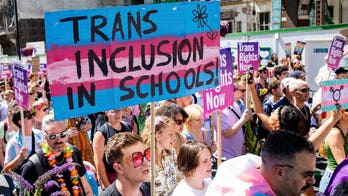Amidst the distressing epidemic of fatherlessness in America, Pastor Corey Brooks emphasizes the profound impact of fathers on children's well-being, society, and the nation's moral fabric. He argues for a return to the foundational values of marriage and fatherhood as the remedy to this crisis.
Today, America faces a grave crisis that threatens the health of our families and the well-being of our children: fatherlessness. Across the nation, countless children grow up without the presence of a father in their homes, leaving a void that can have devastating consequences.

America's Crisis of Fatherlessness: A Call for Fathers in Marriage and Homes
The absence of fathers in the home has become an epidemic that affects children of all races and ethnicities. From the bustling streets of Chicago's South Side to suburban communities across the country, an alarming number of children are deprived of the love, guidance, and stability that a father can provide.
The statistics paint a sobering picture of this crisis. Over 80% of children in predominantly Black neighborhoods like mine do not have a father in the home, while 56% of Black children nationwide lack a father figure. For Latinos, that number has risen to 31%, and for whites, it stands at 21%. These figures are not static; they continue to worsen with each passing year.

America's Crisis of Fatherlessness: A Call for Fathers in Marriage and Homes
To put these numbers into perspective, 89% of the post-war generation, including most Black families I know, had children living in homes with both a mother and a father. Today, that number has fallen to a mere 68% among American families. Millions of children are being profoundly affected by this epidemic.
The consequences of fatherlessness are multifaceted and devastating. Children growing up without fathers are more likely to experience poverty, crime, and educational challenges. They are more prone to mental health issues, substance abuse, and involvement in the criminal justice system.

America's Crisis of Fatherlessness: A Call for Fathers in Marriage and Homes
The impact of fatherlessness extends beyond the individual child. It also damages the fabric of our communities and society as a whole. Without the presence of strong and engaged fathers, children lack role models who teach them the virtues of responsibility, integrity, and perseverance. This, in turn, perpetuates a cycle of broken homes, societal instability, and moral decay.
It is essential to recognize that fatherlessness is not a problem that can be dismissed as a "Black thing." It is an American epidemic that affects families of all backgrounds and socioeconomic levels. The causes are complex and multifaceted, ranging from generational poverty and inequality to cultural shifts and the devaluation of marriage.

America's Crisis of Fatherlessness: A Call for Fathers in Marriage and Homes
However, the solution to this crisis is clear: we must prioritize the importance of fathers in the home and in society. We must foster a culture that values marriage as the foundation of a stable and healthy family. We must empower young men with the tools and support they need to become responsible fathers.
Fathers are not merely biological progenitors; they are the creators of life. It is a natural law that a father should see his child to adulthood, and this role is a profound responsibility and higher calling. There is nothing more precious than the bond between a father and his child, a bond that provides love, stability, and guidance.
When a father abandons his child, that bond is broken, leaving a void that cannot be filled by anyone else. Children who grow up without fathers often feel isolated, insecure, and unworthy of love. They may struggle to form healthy relationships, hold a job, or navigate the complexities of adulthood.
In contrast, children who grow up in homes with two parents often witness love, respect, and a sense of purpose. They learn the value of marriage, commitment, and family. They develop a strong moral compass and a belief in something larger than themselves.
It is not enough to simply increase the number of fathers in the home; we must also ensure that fathers are present in a meaningful and engaged way. Fathers need to be available for their children, both physically and emotionally. They need to provide a loving and supportive environment where children feel safe, respected, and valued.
We must also challenge the cultural stereotypes that depict fathers as distant or irresponsible. Fathers are essential to the healthy development of children, and they should be celebrated and encouraged.
The restoration of fathers to the home is not a quick fix, but it is a necessary step towards healing our communities and strengthening our nation. By investing in fathers, we invest in the future of our children and the future of America.










